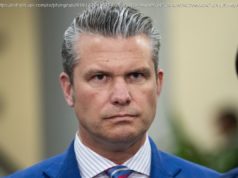Earlier, a number of EU countries released a joint statement pointing out their determination to continue working in collaboration with Russia, China and other states to effectively maintain financial contacts with Iran, irrespective of US-imposed limitations.
A response to US-initiated unilateral sanctions should consist of measures to make the euro stronger when it comes to international transactions, French Finance Minister Bruno Le Maire told journalists on Monday.
“It is critical to strengthen the euro in the world arena. Decisions announced by France, Germany and Great Britain in response to the US unilateral limitations are a way to assert that we strive to strengthen our unified shared currency, want to be sovereign and free,” Le Maire said in Brussels, adding that in the long run, “we want to make the euro one of the underpinning, supportive international currencies.”
“To this end, more solidarity and a greater amount of investments are needed in Europe,” he concluded.
The EU, namely France, Germany and the UK made a joint statement Friday, whereby they confirmed that they would continue working with Russia, China and other states to sustain effective financial ties with Iran, despite US sanctions.
The embargo on business ties with Iran dates back to May 8 of this year, when the US pulled out from the landmark Iranian nuclear deal, also known as the Joint Comprehensive Plan of Action (JCPOA), and re-imposed sanctions against Tehran and any country doing business with Iranian companies, with few exceptions.
The first round of US-initiated economic limitations became effective in August, whereas a greater list of sanctions targeting Iran’s oil and banking sectors, among others, took effect on November 5. The US granted waivers to China, India, Italy, Greece, Japan, South Korea, Taiwan and Turkey.






